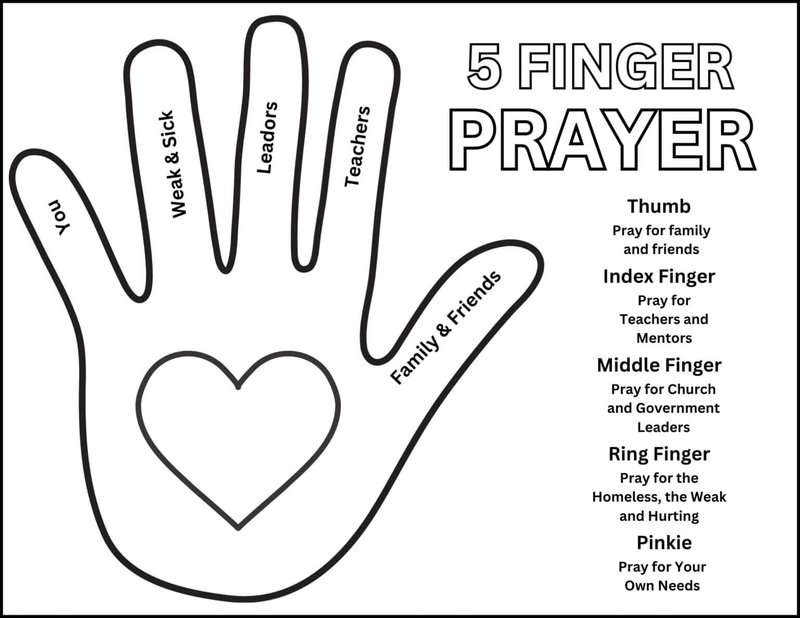· Spiritual Growth · 6 min read
Transform Your Family Through Bible Study: 5 Engaging Ways to Strengthen Faith Together
Discover the joy of studying the Bible as a family with our guide to exploring stories, principles, and verses together. Enhance Christian parenting by engaging in family Bible reading plans and meaningful discussions on faith.

Transform Your Family Through Bible Study: 5 Engaging Ways to Strengthen Faith Together
Introduction
As Christian parents, one of our greatest desires is to pass on our faith to our children and help them develop a strong foundation in Christ. Bible study can be a powerful tool in achieving this goal, allowing families to explore the stories, teachings, and principles of the Bible together. In this article, we will explore five engaging ways to strengthen faith through family Bible study.
1. Exploring Bible Stories with Children
One of the most effective ways to engage children in Bible study is through exploring Bible stories together. By reading and discussing these stories, we can help our children understand the characters, events, and lessons found within the pages of Scripture. This not only deepens their knowledge of the Bible but also allows them to see how these stories apply to their own lives.
According to Christianity Today, “The best children’s Bibles are remarkable works of faith and art. They offer young readers and their families an engaging and accessible introduction to biblical stories and the loving, holy…” By providing age-appropriate Bibles or storybooks that present the narratives in an engaging way, we can capture our children’s interest and make the study more enjoyable for them.
To make the exploration even more interactive, consider using visual aids such as maps, pictures, or even acting out scenes from the stories. This hands-on approach helps children visualize the events and better understand the context. Additionally, asking open-ended questions about the characters’ motivations or how they might have felt during certain situations encourages critical thinking and deeper engagement with the material.
2. Teaching Biblical Principles through Family Study
While Bible stories provide a foundation for understanding God’s work in history, it is equally important to teach our children biblical principles that guide their everyday lives. By focusing on specific themes or principles found in the Bible, we can help our children see how God’s Word applies to their behavior, decisions, and relationships.
According to Eternal Bible, “Studying the Bible together as a family can be a meaningful and…” To teach biblical principles effectively, choose topics that are relevant to your family’s current circumstances or challenges. For example, if your family is struggling with forgiveness, explore passages that talk about forgiveness and discuss how to apply them in real-life situations.
To facilitate discussion and understanding, it can be helpful to use age-appropriate resources such as study guides or devotionals. These resources provide additional insights, discussion questions, and practical applications that make the study more interactive and impactful. By involving the whole family in the discussion, each member can contribute their own perspectives and experiences, fostering a sense of unity and shared growth.
3. Family Bible Reading Plans
Consistency is key when it comes to building a habit of family Bible study. Creating a structured plan for reading the Bible together not only ensures regular engagement with Scripture but also provides a sense of direction and progression. Family Bible reading plans offer a roadmap for exploring the entire Bible over a specific period of time.
According to Children’s Ministry, “One Year in the Bible” provides a reading plan for families to read through the Bible in one year. This plan suggests posting the reading plan somewhere visible to the entire family, like on your refrigerator. By designating a specific time each day or week for family Bible reading, you establish a routine that becomes an integral part of your family’s life.
To make the reading experience more engaging, consider incorporating different reading techniques. For example, you could take turns reading aloud or assign different passages to each family member. This not only breaks up the monotony but also allows everyone to actively participate and take ownership of their own spiritual growth.
4. Discussing Faith and Spiritual Questions as a Family
In addition to reading and studying the Bible together, it is important to create an environment where faith discussions are encouraged. By openly discussing questions, doubts, and spiritual experiences, we create space for our children to express their thoughts and deepen their understanding of God.
According to CreativeBibleStudy.com, “One of the best ways to keep children engaged is to make your family Bible study interactive.” Encourage your children to ask questions about the Bible stories or principles you have been studying. Take the time to listen attentively and provide thoughtful responses that address their concerns.
It’s okay if you don’t have all the answers. Use these moments as opportunities for further exploration and learning together as a family. You can research together, consult trusted resources, or even seek guidance from your church community. By modeling a humble approach to seeking knowledge and understanding, you demonstrate the importance of lifelong learning and growth in faith.
5. Memorizing Bible Verses Together
Memorizing Bible verses is a powerful way to internalize God’s Word and apply it in daily life. It helps us recall biblical truths when faced with challenges or temptations, providing a solid foundation for decision-making and character development. Engaging in memory work as a family not only strengthens individual faith but also fosters unity and accountability within the family unit.
According to Life, Hope and Truth, “One of the best ways to keep children engaged is to make your family Bible study interactive.” Start by selecting key verses that align with the principles or topics you have been studying together. Choose verses that are age-appropriate and relevant to your family’s current circumstances.
To make memorization more enjoyable, consider incorporating games or creative activities. For example, you could create a family memory verse challenge or use music and rhythm to aid memorization. Additionally, regularly reviewing previously memorized verses helps reinforce the learning and ensures long-term retention.
Conclusion
Family Bible study is a transformative practice that can strengthen faith, deepen understanding, and foster unity within the family. By exploring Bible stories, teaching biblical principles, following reading plans, discussing faith, and memorizing verses together, we create an environment where our children can grow in their relationship with God and develop a firm foundation in Christ.
As Christian parents, it is crucial to rely on credible sources of knowledge and expertise within our faith community. By seeking guidance from trusted resources such as children’s Bibles, study guides, and devotionals, we ensure that our family Bible study aligns with the values and principles of our Christian faith.
Remember that each family is unique, and the ways in which you engage in Bible study may vary. The goal is to create an environment where your family can grow together in faith, seeking wisdom and guidance from God’s Word. Through consistent engagement with Scripture and open discussions about faith, your family will be transformed as you walk this journey of spiritual growth together.



